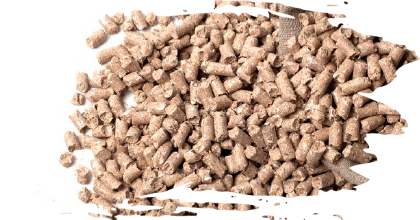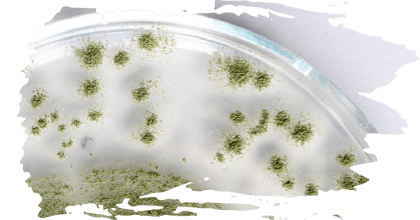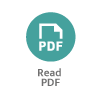BACKGROUND
BACKGROUND
Zearalenone (ZEN) is a potent estrogenic mycotoxin/metabolite produced by several Fusarium species that co-infest corn, wheat, barley, and oats.
![]() Food and animal feed co-contaminated with ZEN presents a health risk for livestock, as well as having a significant negative impact on animal performance.
Food and animal feed co-contaminated with ZEN presents a health risk for livestock, as well as having a significant negative impact on animal performance.
 In this scenario, biological degradation is one of many remediation methods for the elimination of mycotoxins from animal feed. It has shown promise because it works under mild and environmentally friendly conditions.
In this scenario, biological degradation is one of many remediation methods for the elimination of mycotoxins from animal feed. It has shown promise because it works under mild and environmentally friendly conditions.
MATERIALS AND METHODS
In this research study, a sample was collected from an environment contaminated with industrial organic residue:
A microbe identified as Aeromicrobium sp. by NCIMB (UK) was isolated by an enrichment culture procedure using a mineral salt medium and 1 ppm of ZEN as a sole carbon source.
⇰ ZEN reduction level was quantified using LC-MS/MS.

RESULTS
Aeromicrobium sp. degraded 99.5% of 2 ppm of ZEN in a 3-hour period under aerobic conditions.
 The microbe was able to reduce ZEN at pH levels ranging from 5-9 and temperatures ranging from 30-37°C.
The microbe was able to reduce ZEN at pH levels ranging from 5-9 and temperatures ranging from 30-37°C. It can also degrade 10 ppm of ZEN in 24h.
It can also degrade 10 ppm of ZEN in 24h.
The final metabolite was identified as hydrolyzed zearalenone, which is at least 50–10,000 times less estrogenic than ZEN.

Autores
Zdenka Jakovčević, Jog Raj*, Hunor Farkaš, Svetlana Ćujić, and Marko Vasiljević
PATENT CO, DOO., Vlade Ćetkovića 1A, 24 211, Mišićevo, Serbia
*Corresponding author: [email protected]
biocat2024, 11th International Congress on Biocatalysis





 Micotoxicosis prevention
Micotoxicosis prevention